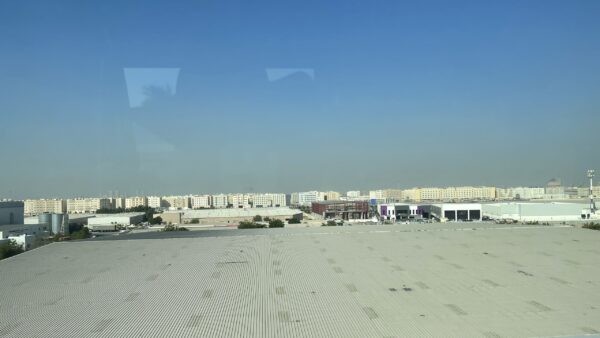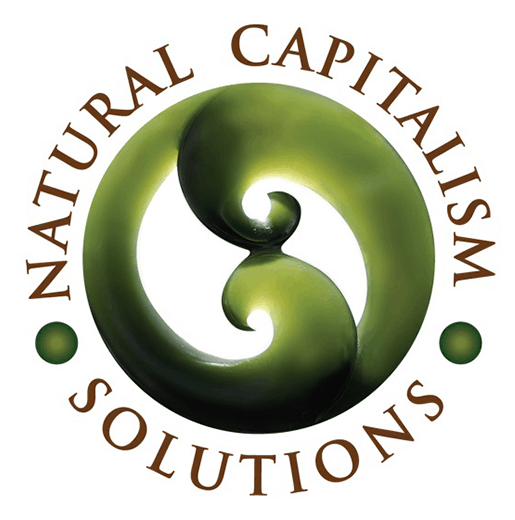Hunter Lovins live from Dubai — Delegates now must decide the fate of the earth
I’m losing total track of what day it is, what month it is: Why are Christmas decorations being hung in the hotel? Oh, right. It is December. COPs usually happen in November. Pouring too much hot water into my instant oatmeal, bleary-eyed from nowhere near enough sleep. Right, it’s not tea. OK, we’ll sip the porridge.
What we call in the mounted search and rescue the “ROW” (rest of the world) or rescuing people with horses, seems a dimly remembered hometown fantasy, until I get an email from a county commissioner in Colorado who wants to meet when I get home. It startles me to remember, oh yeah, those are the meetings that really matter in driving real change. I grab a spare second to write her to say I’d be honored to chat.
An early morning cough. Gawd no, not getting sick? A quick check of body systems. All good, just clearing the Dubai smog from my lungs. Why do they have smog here? They are on the waterfront.
I suppose it has something to do with the 24-hour traffic jams. The massive natural gas power plants we pass by on the Metro every day might be a factor, too. Wow, you build Disneyland in the desert, but allow air pollution? Air pollution kills nearly 7 million every year, according to the World Health Organization. Well, yes, but we have to have electricity — and lots of it to air condition every space in this city, often with doors and windows left open — don’t we?
If South Australia can be well on its way to being 100% solar and battery storage, you’d think the Emirates would invest their lavish oil receipts in giving their people clean air.
Air conditioning in a desert?
But riding the metro into COP campus, we pass miles of flat rooftops with no solar. The reason you need air conditioning is the unrelenting sun. Where are the solar panels? If the Aussie state of South Australia can be well on its way to being 100% solar and battery storage, you’d think the Emirates would invest their lavish oil receipts in giving their people clean air.

Taking stock on climate progress
After a week of pomp and controversy, the negotiations now get serious.
A punchy Politico piece notes, “The first few days of the COP28 climate conference featured so many lofty declarations and flashy promises that you’d be forgiven for asking what delegates are still doing here. But the main negotiations have only just gotten underway.”
Governments have five hours to agree on a climate and science report card, called the Global Stocktake (GST). This is a mandated report card of global action published every five years that lands before the next round of global climate plans are due (2025 in this case). It sets the parameters for new national plans and identifies what they need to include (all sectors, all gasses?) In theory, the reason we are all here is to influence this report.
See our related story: Dispatches from COP28: A personal invitation from a thousand scientists
The GST is the key battleground. Think of the children’s game capture the flag, but with thousands of participants. Whoever has the most influence captures the flag, and will have an outsize influence to determine whether the world can stave off the worst impacts of climate change or careen toward unlivable temperatures. That is why there are more than 2,400 registered oil and gas executives led by the intemperate “COP President” Al Jaber.
Naturally, an oil-rich host was always a risk, but the UAE and Big Oil have only made it worse with dubious interpretations or rejections of climate science, a hydrocarbons production surge, and an influx of big fossil lobbyists.
The starting gun sounded when a draft text of the GST landed overnight. It’s now 24 pages and aims to offer clarity on a final COP28 outcome as it keeps all the main options on the table. It’s evidently not an attempt to find an agreed text or even suggest compromises. Less the beginning of the end, certainly the end of the beginning. It is chunky, too long, too many loopholes. Elusive, you might say.
Here is a typical day of negotiating:
- The U.S. made nearly 200 edits/comments (“took a broadsword” according to one comment);
- The EU wants no vague language on fossil fuels and wants three times more renewables, two times more energy efficiency;
- Malawi says we cannot backtrack from 1.5 C target and the GST needs to deliver on climate finance that supports climate adaptation in the Global South;
- Brazil is concerned with unilateral trade measures connected to climate change
- China: Echoing Brazil on rising unilateralism and wants to address CBAM;
- Iran supports Russia in using natural gas as a bridging fuel — it’s affordable and accessible;
- Saudi Arabia: said para 35 (fossil phase-out) would be a ‘”rauma” and opposed human rights references;
May the deepest pockets win
With Saudi groundwater disappearing, and the Panama Canal turning away ships this week because there is not enough water, alarm bells are ringing.
And it is not just about the weather. It’s also about the credibility of the United Nations. In Dubai, more than ever, the reputation of the process of the UN governing body on climate, is under threat. Naturally, an oil-rich host was always a risk, but the UAE and Big Oil have only made it worse with dubious interpretations or rejections of climate science, a hydrocarbon production surge, and an influx of big fossil lobbyists. Those 2,400 fossil-fuel industry representatives are here for only one reason: to delay climate action by another crucial year.
Back to my tea
So, in a reflection of where we stand in our global efforts to counter climate change, I suck down the last of my morning tea, and join the slow-motion stampede… back to COP.
Photos credit: Hunter Lovins


Leave a Reply